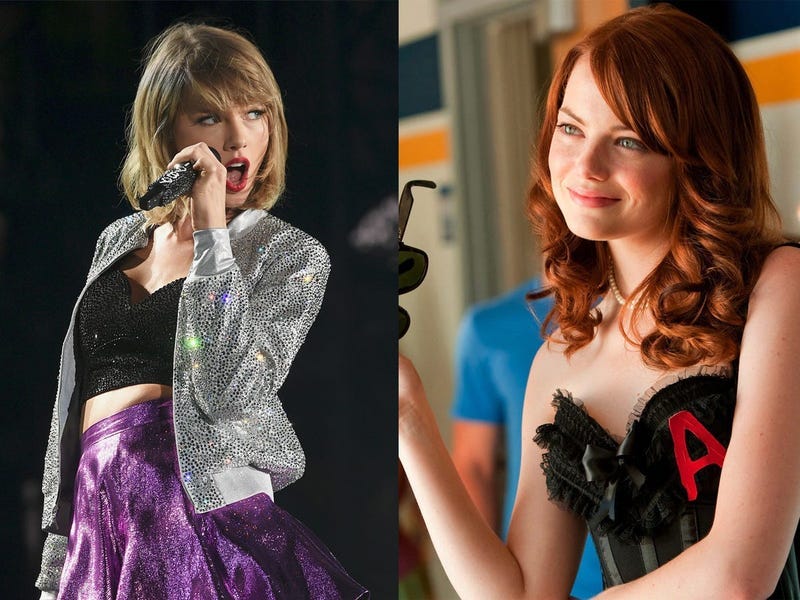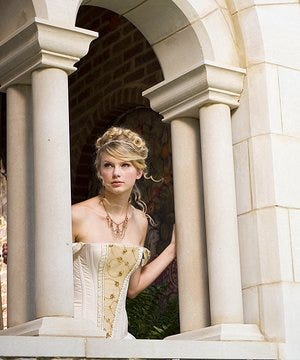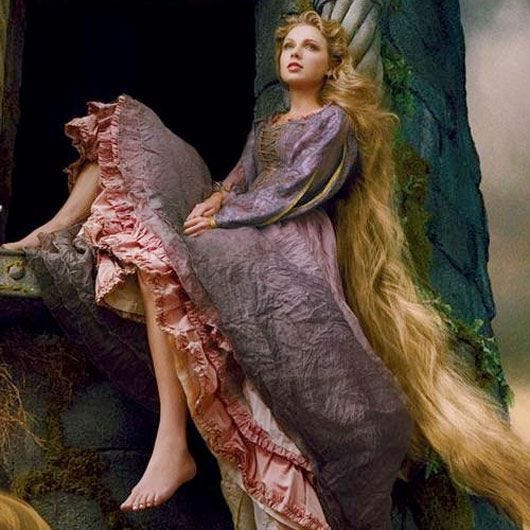This week we’re covering an oldie but goodie–Taylor Swift’s Love Story, from Fearless (Taylor’s Version). In this very narrative-driven song, we get a chance to explore who the protagonists are and what they’re trying to say about their love “story. We explore why Taylor Swift references high school favorites Romeo and Juliet and Scarlet Letter, and what those metaphors may mean. The Scarlet Letter reference makes us look at this song from a whole new lens, forcing us to look at pronouns, verb tenses, and points of view–we promise you’ll never hear this song the same way again.
🖋️ Wondering how we could possibly talk about “Fearless” when Taylor just dropped a DOUBLE ALBUM? Have no fear, a special bonus episode on “The Tortured Poets Department” drops soon!
👀 Sneak Peek
🎒This Week’s Extra Credit - Brought to You by Jodi
Ah, “Love Story.” The song that, by all accounts, put Taylor Swift on the map in 2009. The song that prompts proposals at Eras Tour concerts as Taylor belts out “he knelt to the ground and pulled out a ring.” This song is always associated, understandably, with Romeo and Juliet. However, in our deep dive this week we explore other literary allusions that are just as prevalent in the song.
A literary allusion is an indirect reference designed to call a piece of literature to mind.
According to Wikipedia, “At the time of the song's release, music critics praised the production but deemed the literary references ineffective.” I figured I’d use this week’s extra credit to challenge these music critics and look deeper into all the literary references we uncovered.
"You Were Romeo, you were throwing pebbles" - Shakespeare's "Romeo and Juliet"
The opening line of "Love Story" sets the stage for the song's theme of forbidden love, and gives it its most famous reference, Romeo and Juliet. Swift references the play's family feuds and the couple's undying love for each other as the main vehicle for moving the song’s plot along. It’s a helpful metaphor in a song about a boy your family disapproves of. All Taylor has to say is “You were Romeo…and my father said stay away from Juliet,” and—bam! We get the premise here. I’d say this is a pretty effective literary reference considering Taylor was 20 years old when she released this song, meaning she was likely in high school when she wrote it. If her goal was to target teenagers and write a story they understood immediately, using a play almost every high schooler reads (or at least consumes by watching the Leonardo DiCaprio/Baz Luhrmann version) seems like mission accomplished to me.
"You'll be the prince and I'll be the princess" - Grimm’s Fairytales
While Shakespeare is the song’s most enduring reference, Swift doesn’t stop there. The first verse gives us a fabulous ball, “See the lights, see the party, the ballgowns,” reminiscent of classic fairytales like Cinderella. She mixes metaphors further in the chorus, “You'll be the prince and I'll be the princess.” This is where the critics may be correct in critiquing Taylor’s use of literary references. Romeo and Juliet were ill-fated starcrossed lovers; relating them to a prince and a princess changes the story of Romeo and Juliet, making them both royal and aspirational. No one reads Romeo and Juliet and thinks “I want to end up like them!” But read a child Cinderella, Snow White, or any other Prince/Princess book, and that’s how we end up as a society singing “Someday my prince will come.” Now, we’re dealing with a forbidden love that ends up in death that’s meant to look aspirational and desirable. I can see why her daddy wants Romeo to stay away!
“…I was a scarlet letter” - Nathaniel Hawthorne’s “Scarlett Letter”

Ah, the reference that nearly BROKE us during recording. It’s been there the whole time—this song has been out since 2008, after all. But it took us until a deep reading of the song to unpack it. Scarlet Letter, written by Nathanial Hawthorne in 1850, tells the story of Hester Prynne, a young woman who has a child out of wedlock and is forced to wear a scarlet “A” on her dress as a sign of her shame. The phrase “I was a scarlet letter” means the speaker feels some sort of shame, implying she did something wrong. Similar to Romeo and Juliet or Princes and Princesses, the novel Scarlet Letter is a reference most American teenagers will understand immediately, making it a useful lyrical device for Taylor—she can get her point across without being verbose when she uses a literary allusion.
But this is QUITE the allusion to use! The song doesn’t tell us anything the speaker would feel shame for. All we know is he’s Romeo, she’s a scarlet letter, and her daddy said “stay away from Juliet.” Juliet didn’t have anything to be ashamed of either in Romeo and Juliet. So that left us thinking—wait a second—is the singer pregnant?
Now I, Jodi, quite heavily rolled my eyes at this. (Ediror’s note from Jenn: This is putting it lightly. I think her soul briefly left her body during that part of the conversation) I think this is a bit too literal for me. But even without a literal teenage pregnancy in the song, alluding to Hawthorne’s novel tells us our speaker feels deep shame, ostracized from her community, and out of place. It makes even more sense now why they want to “escape this town” —he’s her ticket out of a place she doesn’t belong.
What are your other favorite literary allusions in Taylor Swift songs? Let us know in the comments!
🛍️ Shop With Us! Active Discount Codes
🔉Libro.fm Support your local bookstore while listening to great audiobooks.
Code: APTS
Offer: Get a free audiobook when you start a new membership (you must use this link!)
Receive 2 audiobook credits for $14.99 USD with your first month of membership.Code: APTS30
Offer: 30% off specific audiobooks in the AP Taylor Swift playlist.
✨ Krowned Krystals Make the whole place shimmer with the best rhinestones
Code: APTS
Offer: 10% off your order when you use the link above







